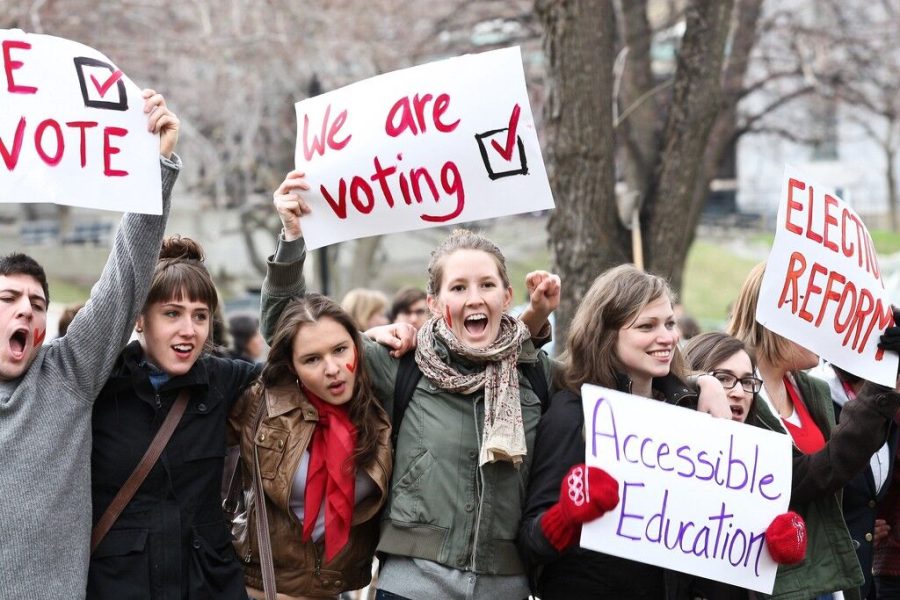How Our Generation Talks Politics Differently
Our generation has been more politically active than our parents’ and other generations.
November 4, 2020
The conversations I’ve had in the past few weeks have been undeniably dominated by politics. Whether it is discussion of Amy Coney Barrett’s confirmation or a group analysis of each debate, politics are inescapable. One question that keeps coming up is an obvious one: Who are you voting for?
This question today is pretty typical in everyday conversation. Though it may not be asked directly, most people my age are relatively open about who they support politically. In our parents’ day, asking someone who they were voting for was as offensive and intrusive as asking how much they weigh.
I think this is because politics are far more polarized and publicized than ever before. It is impossible to go on Instagram, read the paper or watch the news without being bombarded by the latest breaking political happenings. Social media is flooded with opinions from all sides. Politics have become a go-to topic of conversation because they monopolize so much of the information we are taking in every day.
Politics used to fall under the category of conversational taboo, along with religion and salary. Because of the overwhelming presence of political discussion in the media however, they have become a part of common discourse. Furthermore, subjects like religion and how much money someone makes have become an interconnected part of this discussion. Years ago, these subjects were avoided to keep harmony in conversation among peers. The mutual understanding to avoid these tumultuous topics seems to have gone by the wayside.
While I understand the desire to have friends who share the same opinions as ourselves, we learn more by surrounding ourselves with diverse opinions. That being said, I don’t think who someone supports politically should be the deciding factor in befriending them.
Looking up to my parent’s generation, I admire them for having friends who represent a variety of beliefs. It is important to remember that not every part of someone’s personality is defined by which party they affiliate with. Having differing political views really should not make or break friendships. Instead of only focusing on the reasons why we disagree with our peers, we should be looking for common ground. Rather than constantly argue with each other, we should go into conversations with people of differing views with the intention of educating one another.
Divisiveness will get us nowhere. We see this exemplified everyday by our current representatives and leaders. I hope that we create an environment at the University post-election that is tolerant of everyone’s opinion and values.



